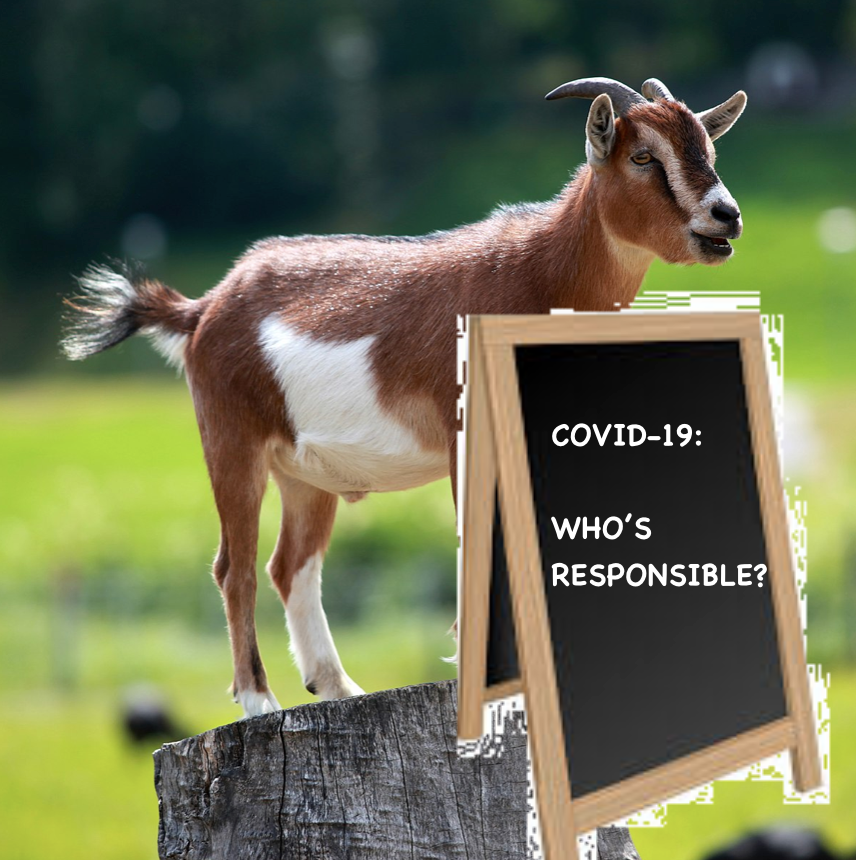I would get within a hair’s breadth of defeating Bowser once and for all, before my game of Super Mario Brothers would freeze up. I don’t have to tell you how frustrating that is. Restarting my Nintendo Entertainment system, blowing the dust from the back of the cartridge and the console’s cartridge slot – nothing worked. Why had life become so cruel? I didn’t know what I had done to deserve this, but I was fairly certain that the Russians were responsible in some way. They wove their insidious tentacles into any aspect of life they could, because the Soviets would stop at nothing to rob Americans like me of the freedom and lifestyle they cherished so dearly.

As time went by, the group responsible for ruining my life morphed into other shapes: New Kids on the Block (I couldn’t measure up in the eyes of the girl I was interested in), Saddam and the Iraqis; the New Jersey DMV; the Los Angeles Lakers.
This is human nature at its not-so-greatest. According to Rene Girard’s mimetic theory, we have an innate impulse to deal with our collective angst, to excuse our morally-questionable actions and to achieve social unity by projecting blame or responsibility onto ‘the other’, an often faceless group or individual.
For me (and for the great majority of Americans in the 80s), it was those damn Ruskies. Yet the advent of the COVID-19 virus has introduced a different cast of scapegoats to take the blame for our current tribulations. Yes, the usual suspects are featured. Other players are somewhat new to the script. The Chinese. People who wonder what bat or pangolin sautéed with garlic and chilli would taste like. Wicked scientists in their laboratories of evil. The World Health Organisation. Democrats. Government officials who won’t release us from lockdown. Democrats.
And it doesn’t stop with terrestrial entities. Even God and the devil appear for some as scapegoats in the current play — God, judging a particular group for their moral degeneracy (Democrats, maybe), or testing our faith; the devil, attempting to destroy America, or England, or Australia, and the people of God. It’s as if God and the devil shook hands and said, “This is in both our interests, so perhaps we team up for this one.”
It turns out that making God into a scapegoat is nothing new. Suzanne Ross of Raven Foundation, a student of mimetic theory, suggests that Old Testament writers assigned the tribalism and the violence and the questionable moral practices common to ancient peoples (and far less ancient peoples, if we’re being honest) to the command of YHWH.¹ After all, if YHWH commanded it, the people could be excused for killing women and children with no quarter, carrying out genocide, or taking captive women for what would amount to sexual slavery.
Many well-intentioned Christians appeal to divine ‘transcendence’, insisting that God exists beyond our morality. What would be decidedly immoral for us would not be immoral for God, because God sets the rules and can break them at will for any reason God chooses. This theology forces even an honourable man like John Piper to say this:
It’s right for God to slaughter women and children anytime he pleases. God gives life and he takes life. Everybody who dies, dies because God wills that they die… So God is God! He rules and governs everything. And everything he does is just and right and good. God owes us nothing.²
Ah, but what if Ross’s and Girard’s ideas contain truth? What if all that violence was our violence? What if the genocide and the slavery and the rest were our choices? And what if God was made the scapegoat for our decisions, giving us carte blanche to carry out whatever disgraces we liked? Sure, it flies in the face of the notion of ‘inerrancy’ accepted by many evangelicals, but it rescues God from the multiple personality disorder required by that brand of biblical interpretation.
And what if the current COVID-19 pandemic is not some divine test or judgement or permissible demonic assault we can defeat with enough prayers? In other words, what if it’s not God’s fault? Hell, what if it’s no one’s fault?
And what if, by spending less energy on determining who – divine or human – is responsible for this unbearable situation we now find ourselves in, we had more time to consider others, to make decisions that protected vulnerable people, to be grateful for the new perspectives that the current status quo provides us?
Maybe even new perspectives on the Russians.
Sources:
1. Suzanne Ross, “A (Brief) History of Religion and Violence: An Ancient Love Story”, Raven Foundation, accessed April 17, 2020, https://www.ravenfoundation.org/a-brief-history-of-religion-and-violence-an-ancient-love-story/.
2. John Piper, “What Made it Okay for God to Kill Women and Children In the Old Testament?”, Desiring God, accessed April 14, 2020, https://www.desiringgod.org/interviews/what-made-it-okay-for-god-to-kill-women-and-children-in-the-old-testament.
Image Credits:
Feature Image: This was made with a goat photo from Wikipedia, a sandwich board photo from VectorStock (https://images.app.goo.gl/MrCZQxXr1SEq3eCz7) and a PNG creator.
Mikhail Gorbachev, from Time Magazine, May 23, 2016, https://time.com/4343154/mikhail-gorbachev-the-new-russia/


Leave a Reply